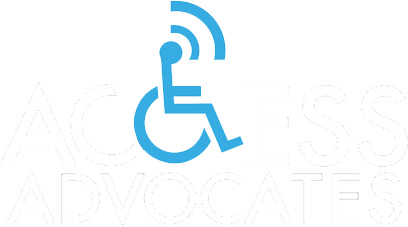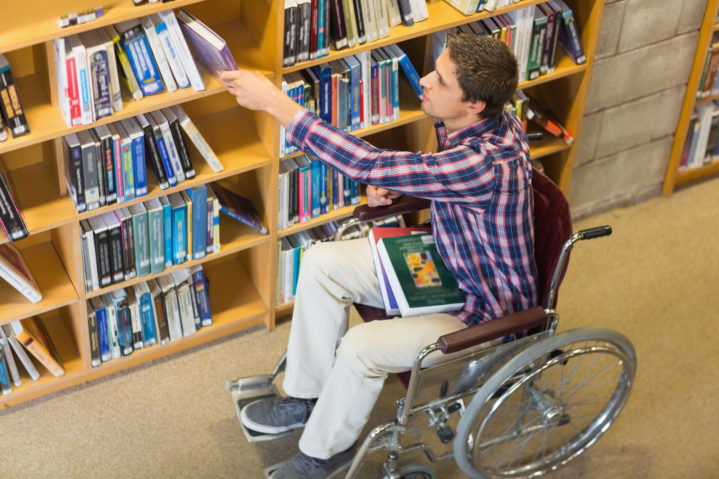The modern library is tasked with providing informational services to the general community. The public can borrow books and other materials in electronic and digital form. Many libraries offer free services to its patrons through book clubs, special story time, free Wi-fi and computer access or quiet, study space. Some have modernized to include coffee bars, rapid self-check kiosks, and e-books.
However, for a person with a disability, the public library may also offer a host of accessibility challenges. While beautiful, Carnegie libraries often have a stone facade with cascading steps. Smaller libraries may not have adequate space for a person using a wheelchair to maneuver through the stacks. Technology may not be sufficient to assist a person with a visual impairment to navigate the catalog or the staff may not have the training to know how to install and use the assistive technology. The very process of gathering information may be difficult, if not impossible, in some communities.
If you experience difficulty in accessing the public services available through your local library, there are resources available to help you help your community become more accessible and livable. Through Access Advocates, a team of professionals can work with you to offer counsel, provide resources and offer a guide to improve accessibility in your community. It is your right to access both public and private services in your community.
As a public accommodation, the library is required to follow accessibility guidelines under the Americans with Disabilities Act. These guidelines include specifications for parking allotments, access into the library, signage throughout the facility, bathrooms, ease of movement throughout the space, and access to materials. If you experience challenges in any of these areas, contact Access Advocates.

